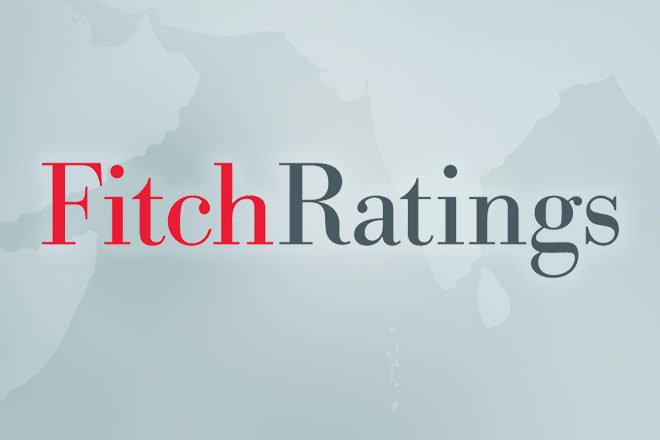Aug 06, 2020 (LBO) - Fitch Ratings Lanka has affirmed Commercial Bank of Ceylon PLC's (CB) National Long-Term Rating at 'AA+(lka)'. The Outlook remains Negative. At the same time, Fitch has affirmed the bank's subordinated debentures at 'AA-(lka)'.
KEY RATING DRIVERS NATIONAL RATING
CB's National Long-Term Rating is driven by its intrinsic financial strength and is highly influenced by our assessment of the operating environment. It also reflects its established domestic franchise as Sri Lanka's third-largest bank, which will support its earnings performance and its entrenched domestic-deposit franchise. that underpins its funding and liquidity profile. The Negative Outlook is aligned with the negative outlook on the sovereign rating and the operating environment mid-point for Sri Lanka, and reflects the constraint on CB's rating by the sovereign credit profile.
The National Long-Term Rating could be downgraded should there be negative rating action on the sovereign, resulting in a reassessment of the ratings relativities of the universe of Sri Lankan issuers.
The operating environment for banks in Sri Lanka remains challenging. We expect GDP to contract by 1.3% in 2020 due to the impact from the coronavirus pandemic. We forecast GDP growth of 4.2% in 2021, although growth prospects will depend in part on how the pandemic develops in Sri Lanka and globally.
The outlook on the operating environment assessment remains negative to reflect the possibility that the effects of the pandemic are more pronounced or persist. The operating environment for Sri Lankan banks has a high influence on the banks' ratings, as it is likely to constrain their intrinsic credit profiles through its effect on financial and non-financial key rating factors.
Fitch believes CB's credit profile would remain primarily linked to the Sri Lankan operating environment, despite is non-domestic operations in Bangladesh and more recently in the Maldives and Myanmar. We expect CB's asset quality to continue to remain under pressure in the near to medium term while the operating environment is challenging. CB's impaired-loans ratio based on stage 3 loans rose to 10.6% by end-2019 from 6.1% at end-2018, reflecting deterioration prior to the full onset of economic disruptions from the pandemic.
The rise in the impaired-loans ratio stemmed largely from the impact of the Easter 2019 attack, with tourism sector loans accounting for about third of incremental stage 3 loans. Underlying asset-quality stress could continue to build amid the economic shock, despite regulatory relief in the form of a moratorium on loan repayments for affected customers, which has, to a large extent, halted the recognition of credit impairments. We expect weaker income generation and higher credit costs to weigh on CB's earnings and profitability. Operating profit/risk-weighted assets decreased to 2.4% in 1Q20 from 3.0% in 2019 largely due to the sharp increases in loan impairment charges.
The capital infusion of USD50 million from the IFC through a private placement to take place in 2020, which is subject to shareholder approval, will increase CB's end-1Q20 common equity Tier 1 ratio to 12.5%.
The enhancement of capital buffers is timely as capital impairment risks have increased due to the pandemic. CB has to maintain a minimum Tier 1 ratio of 10% and total capital ratio of 14% as a bucket 2 domestic systemically important bank and its ratios have been comfortably above these thresholds.
CB's funding and liquidity profile is supported by its entrenched domestic deposit franchise. The accommodative stance by Sri Lanka's central bank supports CB's rupee liquidity position, but there could be challenges in the access to - and pricing of - foreign-currency funding due to the deteriorating sovereign credit profile. CB's loan-to-deposit ratio continued to decline to 86% at end-1Q20 as a result of the deceleration in lending. SUBORDINATED DEBT CB's Basel II and Basel III compliant Sri Lankan rupee-denominated subordinated debt is rated two notches below the National Long-Term Rating anchor.
This reflects Fitch's baseline notching for loss severity for this type of debt and our expectations of poor recoveries. There is no additional notching for nonperformance risks, as the notes do not incorporate going-concern loss-absorption features.
RATING SENSITIVITIES
Factors that could, individually or collectively, lead to positive rating action/upgrade: Upside to CB's National Long-Term Rating is limited in the near term due to our assessment of the sovereign rating and the operating environment outlook. CB's subordinated debt would be upgraded if the bank's National Long-Term Rating is upgraded.
Factors that could, individually or collectively, lead to negative rating action/downgrade: Pressure on CB's National Long-Term Ratings could stem from a downgrade of Sri Lanka's sovereign rating and a sustained decline in its capital buffers while operating environment risks remain high. A weaker assessment of the operating environment independent of changes in the sovereign rating would also lead to increased downward pressure on CB's ratings. CB's subordinated debt would be downgraded if the bank's National Long-Term Rating is downgraded.

